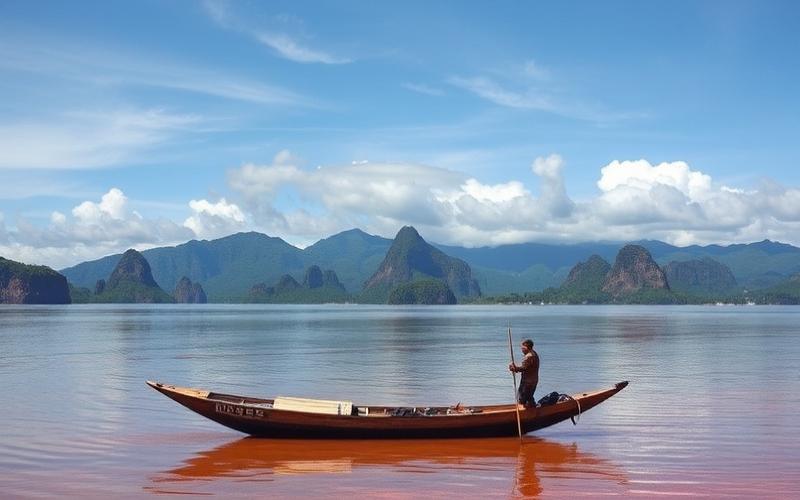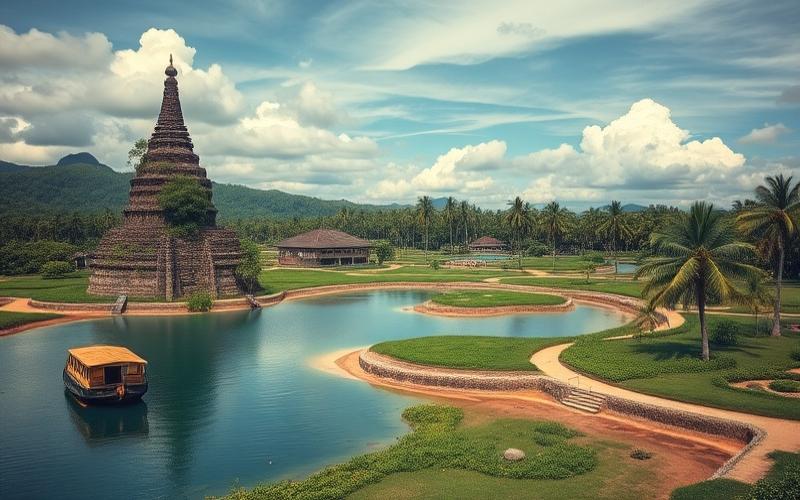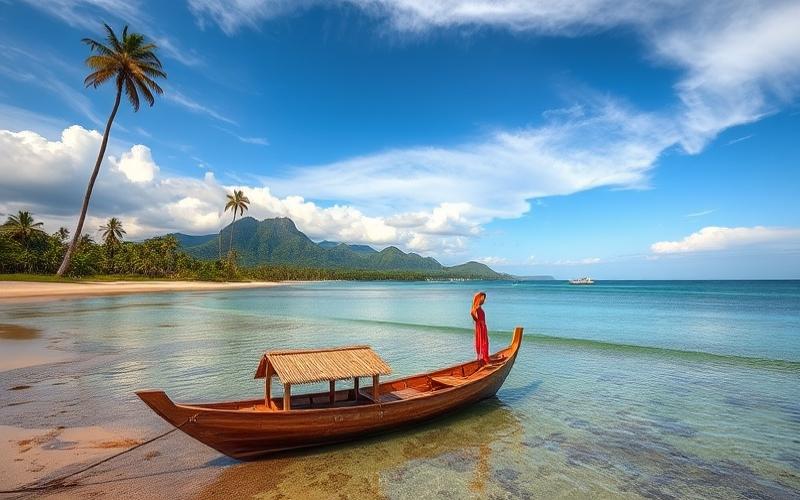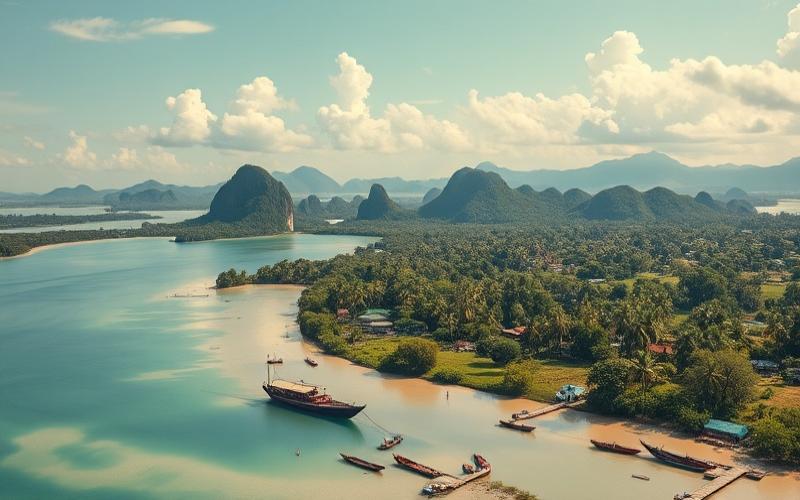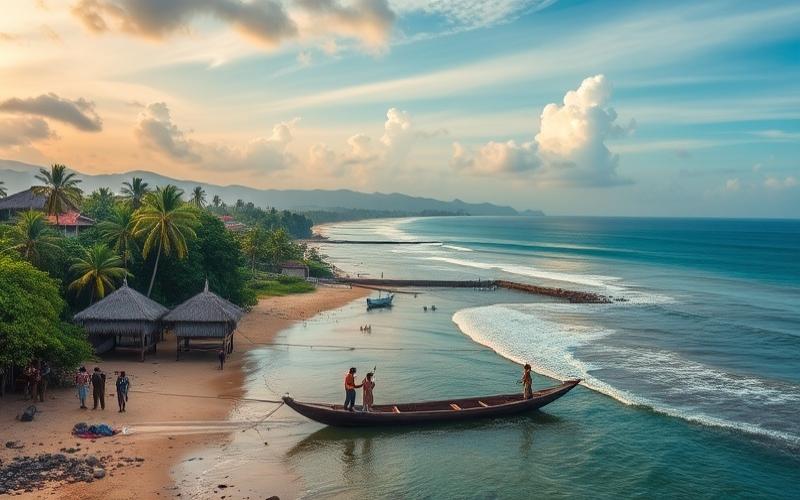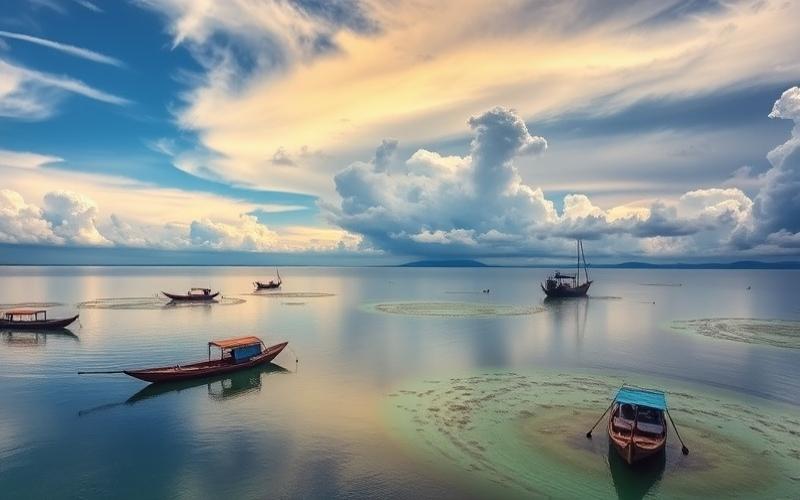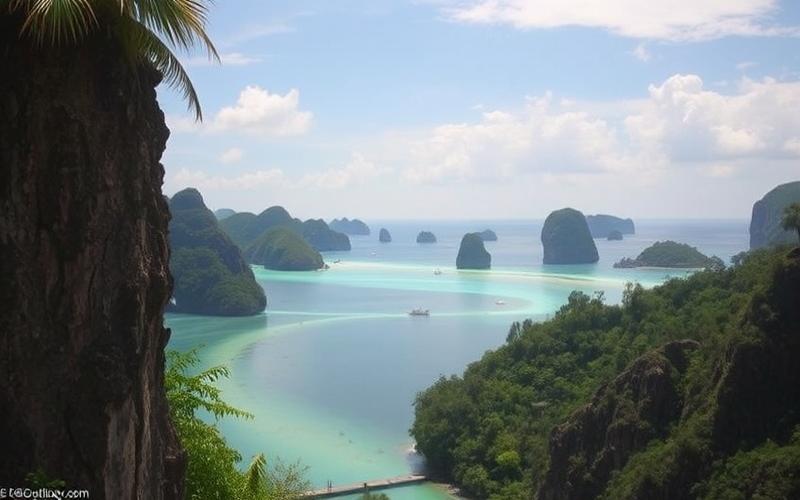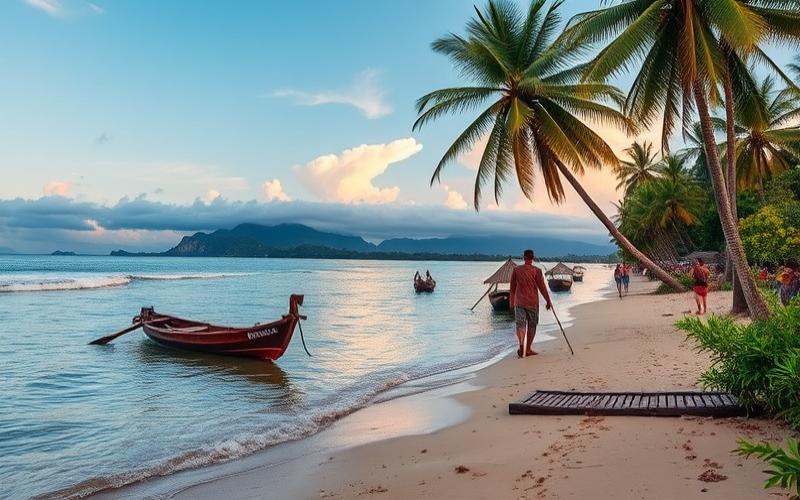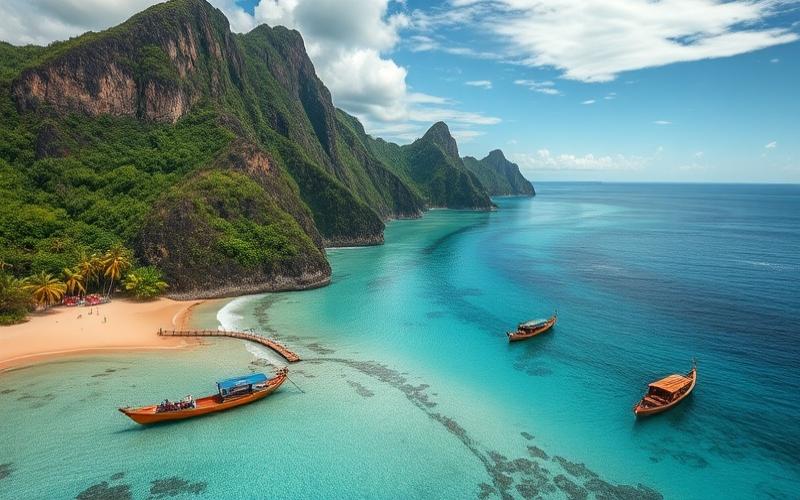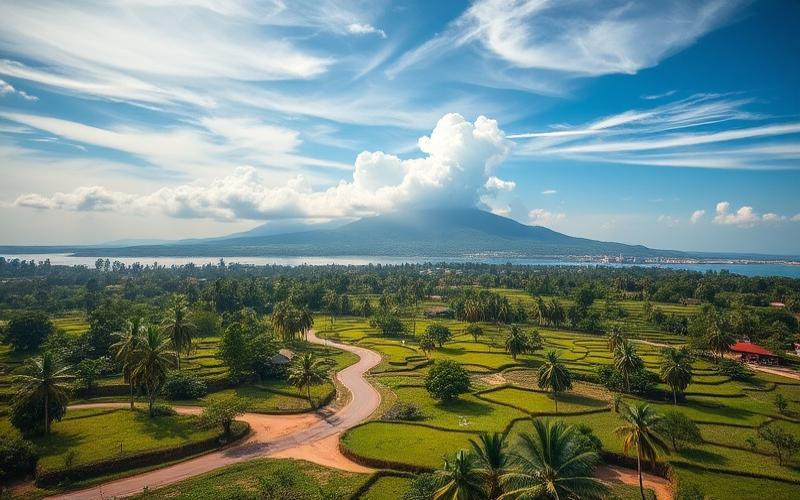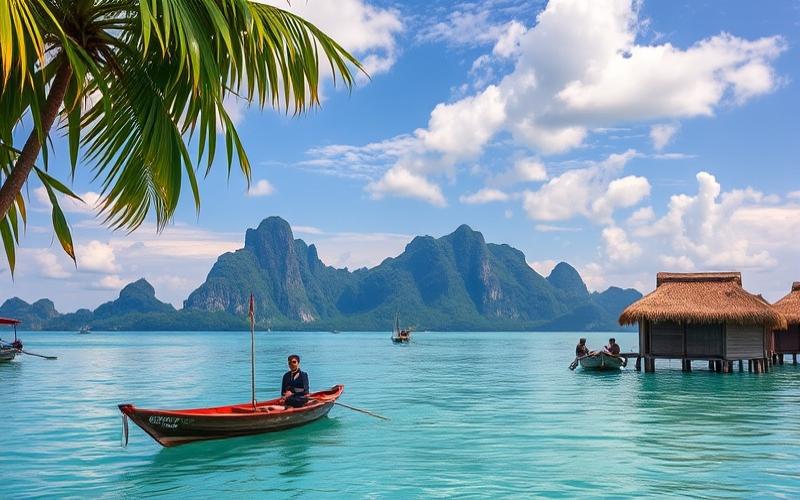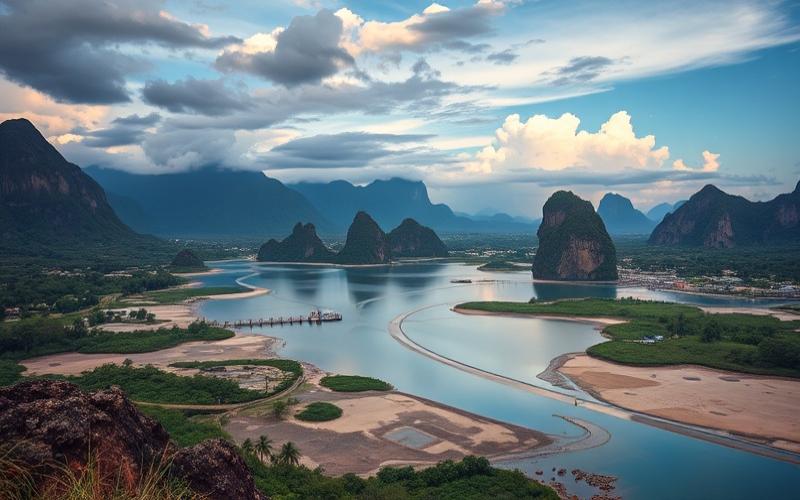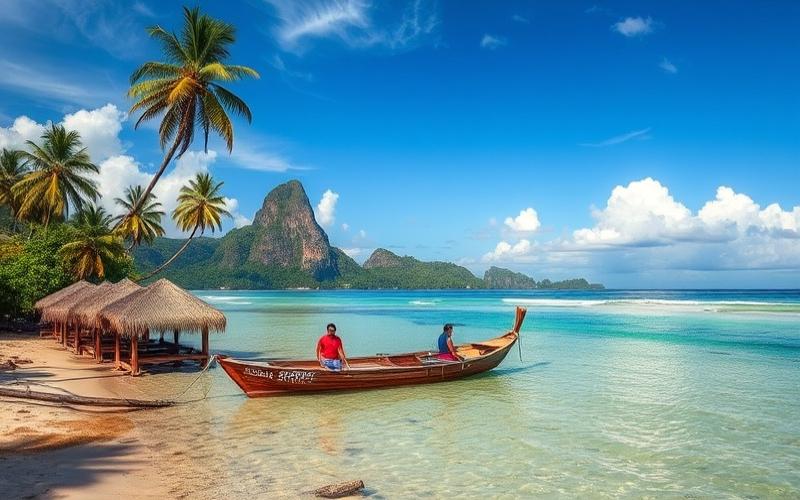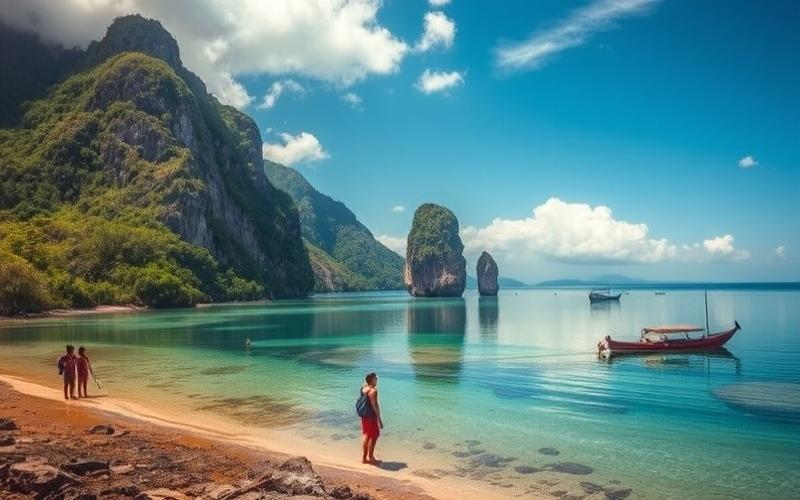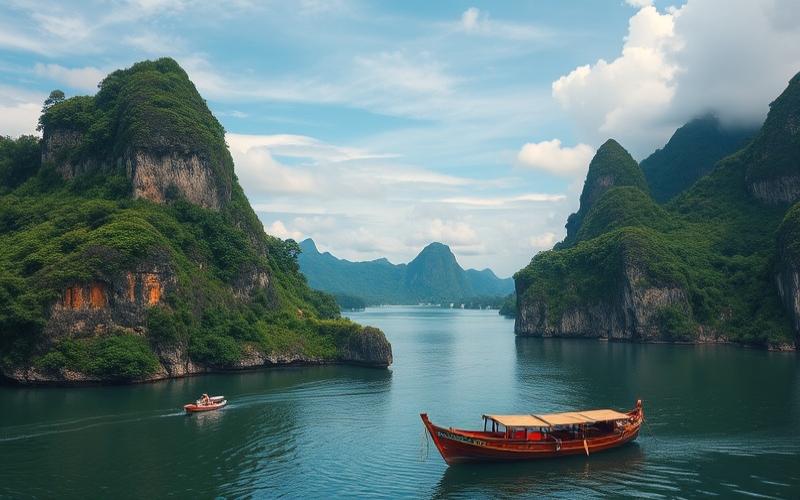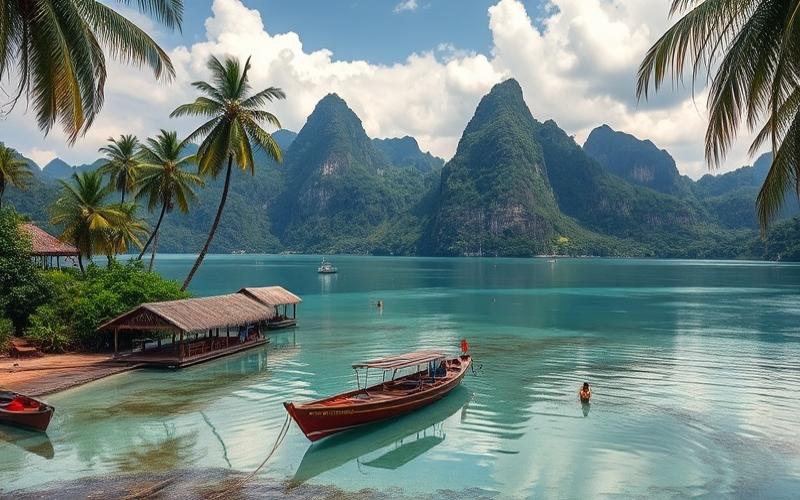
 Published on and written by Cyril Jarnias
Published on and written by Cyril Jarnias
Malaysia, Southeast Asia’s cultural crossroads, offers a rich and diverse religious landscape that fascinates as much as it may perplex expatriates. This guide will help you navigate this unique environment, where Islam coexists with Buddhism, Hinduism, and Christianity, creating a mosaic of traditions and celebrations that shape daily life.
Malaysian Religious Landscape: A Unique Diversity
Malaysia stands out for its religious diversity, reflecting its varied ethnic composition. Islam is the country’s official religion, practiced by approximately 62% of the population, mainly of Malay origin. However, freedom of worship is guaranteed by the Constitution, allowing for the peaceful coexistence of several other faiths.
Buddhism, practiced by about 20% of the population, primarily of Chinese descent, is the country’s second-largest religion. Hinduism, meanwhile, is followed by approximately 6.3% of Malaysians, mainly of Indian origin. Christianity, with 9.2% of adherents, completes this diverse picture.
This religious plurality is reflected in the urban landscape, where mosques, Buddhist and Hindu temples, and churches stand side by side, offering a striking visual spectacle and testifying to the country’s cultural richness.
The Impact of Religious Practices on Daily Life
For expatriates, understanding the influence of religious practices on daily life in Malaysia is essential for successful integration. Here are some important aspects to consider:
Lifestyle Rhythm Influenced by Islam
The call to prayer echoes five times a day in Malaysian cities, reminding everyone of Islam’s importance in society. Expatriates will quickly notice that many restaurants and businesses briefly close during these prayer times, especially on Friday noon for the week’s most important prayer.
During the month of Ramadan, the pace of life changes significantly. Muslims fast from sunrise to sunset, which can affect work schedules and service availability. Non-Muslims are encouraged to respect this period by avoiding eating, drinking, or smoking in public during the day.
Dress Codes and Behaviors
Malaysia, although relatively liberal compared to other Muslim countries, observes certain dress codes, particularly for women. In public places, it is recommended to dress modestly, avoiding overly revealing clothing. This rule applies especially when visiting places of worship, where covering shoulders and knees is often required.
Food and Drinks
Alcohol consumption is regulated and may be frowned upon in certain contexts. Muslims do not consume it, and its sale is restricted. Expatriates should be aware that many restaurants are “halal,” not serving alcohol and adhering to Islamic dietary prescriptions.
Good to know:
In major cities like Kuala Lumpur, you can easily find non-halal restaurants and bars, but it’s important to remain discreet in alcohol consumption out of respect for the local culture.
Main Religious Holidays in Malaysia
The Malaysian calendar is punctuated by numerous religious holidays, reflecting the country’s cultural diversity. Here are the most important celebrations that expatriates should know:
Hari Raya Aidilfitri (Eid al-Fitr)
This holiday marks the end of Ramadan and is one of the most important celebrations for Malaysian Muslims. Families gather for large meals, exchange gifts, and ask for forgiveness for past offenses. For expatriates, it’s an opportunity to discover Malaysian generosity and hospitality, as it’s common to be invited to share a festive meal.
Thaipusam
This spectacular Hindu festival is celebrated mainly by the Tamil community. Devotees participate in processions, often carrying “kavadis” (decorated structures) and practicing various forms of bodily mortification as a sign of devotion. The Batu Caves near Kuala Lumpur are the center of celebrations, offering an impressive spectacle to observers.
Wesak (Vesak)
This Buddhist festival commemorates the birth, enlightenment, and death of Buddha. Buddhist temples are decorated with lanterns and flowers, and devotees participate in processions and meditations. It’s an excellent opportunity for expatriates to discover Malaysian Buddhist culture.
Christmas and Easter
Although Malaysia is a Muslim-majority country, Christmas and Easter are celebrated enthusiastically by the Christian community. Shopping malls and public spaces are often decorated for Christmas, creating a festive atmosphere enjoyed by all.
Good to know:
Most of these holidays are public holidays in Malaysia. It’s important to plan your activities accordingly, as many businesses and services may be closed or have reduced hours during these periods.
Adaptation and Respect: Keys to a Positive Experience
For expatriates, adapting to local religious practices while maintaining their own cultural identity can be challenging. Here are some tips for navigating this complex religious landscape:
Respect and Open-Mindedness
The key to successful integration is mutual respect. Show interest in local traditions, ask respectful questions, and be open to participating in celebrations if invited. This attitude will generally be well-received by Malaysians, known for their hospitality.
Adapting to Local Norms
During Ramadan, for example, adapt your behavior by avoiding eating, drinking, or smoking in public during the day. In places of worship, respect specific dress codes and behavior rules.
Maintaining Your Own Religious Identity
Malaysia guarantees freedom of worship, and expatriates can generally practice their religion without difficulty. Major cities like Kuala Lumpur offer a variety of places of worship for different faiths. Don’t hesitate to seek out religious communities matching your faith to feel more comfortable.
Religious Freedom and Resources for Expatriates
Although Islam is the official religion, the Malaysian Constitution guarantees freedom of worship for all citizens and residents. However, it’s important to note that proselytizing to Muslims is prohibited by law.
For expatriates wishing to practice their religion, several resources are available:
– Expatriate religious communities: Many international churches, temples, and synagogues exist in major cities, offering services in different languages.
– Support groups: Expatriate associations often organize meetings and religious celebrations.
– Online resources: Many expatriate websites and forums provide information about places of worship and religious practices in Malaysia.
Conclusion: Embracing Malaysian Religious Diversity
Malaysia offers a unique experience where religious diversity is celebrated and respected. For expatriates, understanding and appreciating this cultural richness can greatly enhance their stay. By adopting an open and respectful attitude, while remaining true to one’s own beliefs, it’s possible to have a harmonious and enriching expatriate experience in this fascinating country.
Good to know:
Religious tolerance is a fundamental value in Malaysia. By embracing this diversity and participating in local celebrations, expatriates can not only integrate more easily but also contribute to strengthening this spirit of intercultural harmony.
Disclaimer: The information provided on this website is for informational purposes only and does not constitute financial, legal, or professional advice. We encourage you to consult qualified experts before making any investment, real estate, or expatriation decisions. Although we strive to maintain up-to-date and accurate information, we do not guarantee the completeness, accuracy, or timeliness of the proposed content. As investment and expatriation involve risks, we disclaim any liability for potential losses or damages arising from the use of this site. Your use of this site confirms your acceptance of these terms and your understanding of the associated risks.


